One-half of clinicians working in the U.S., doctors and nurses alike, are considering leaving their current role in the next two to three years.
That 1 in 2 clinicians is significantly greater than the global 37% of physicians and nurses thinking about leaving their roles in the next 3 years, according to the report Clinician of the Future 2023 from Elsevier.
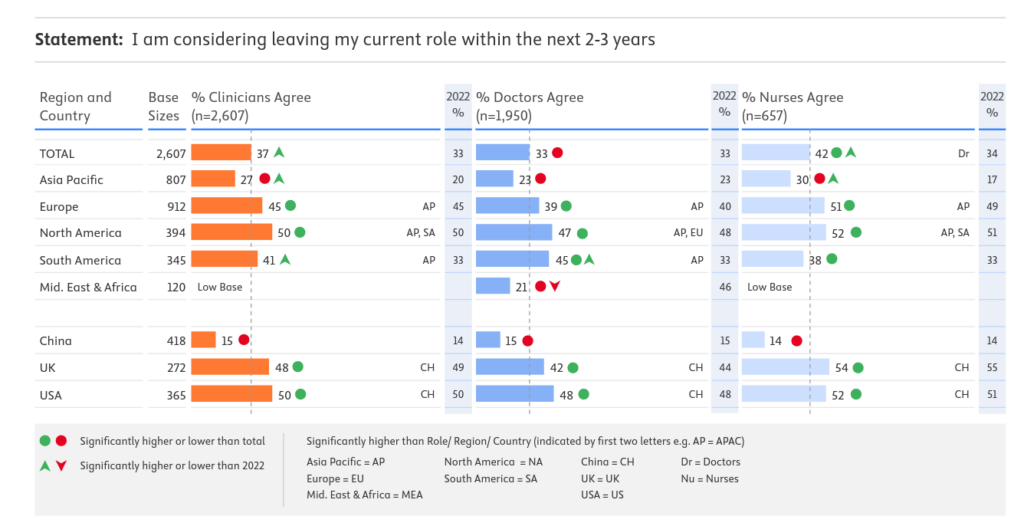
Elsevier first conducted research among doctors and nurses for the Clinician of the Future report in 2022, following up this year’s survey research online among 2,607 clinicians working around the world: Elsevier polled 365 U.S. clinicians for the 2023 research (fielded in April and May 2023).
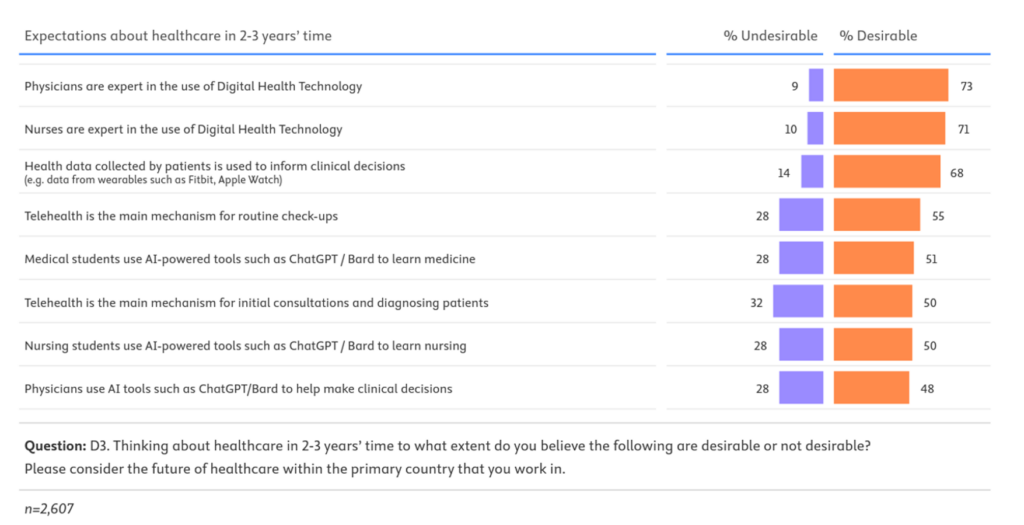
In 3 years’ time, globally, 7 in 10 clinicians expect that both physicians AND nurses will be expert int he use of digital health technology, and would be a desirable outcome.
In addition, two-thirds of clinicians expect that patient-generated data will be used to inform clinical decisions — such as metrics collected from a smartwatch or remote health monitoring device.
One-half of clinicians globally expect that AI tools such as ChatGPT and Bard will help make clinician decisions — with 28% saying this would not be a desirable expectation.
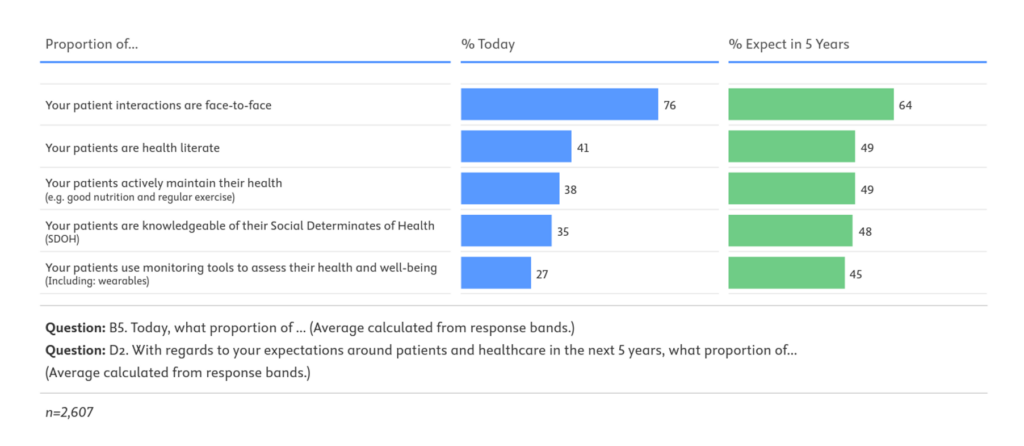
Today, three in four clinical encounters happen face-to-face; clinicians expect this to decline to 2/3 in the next 5 years.
More clinicians are also optimistic that, five years from now, more patients will actively maintain their health, use monitoring tools to assess health, and know about their personal Social Determinants of Health, as well.
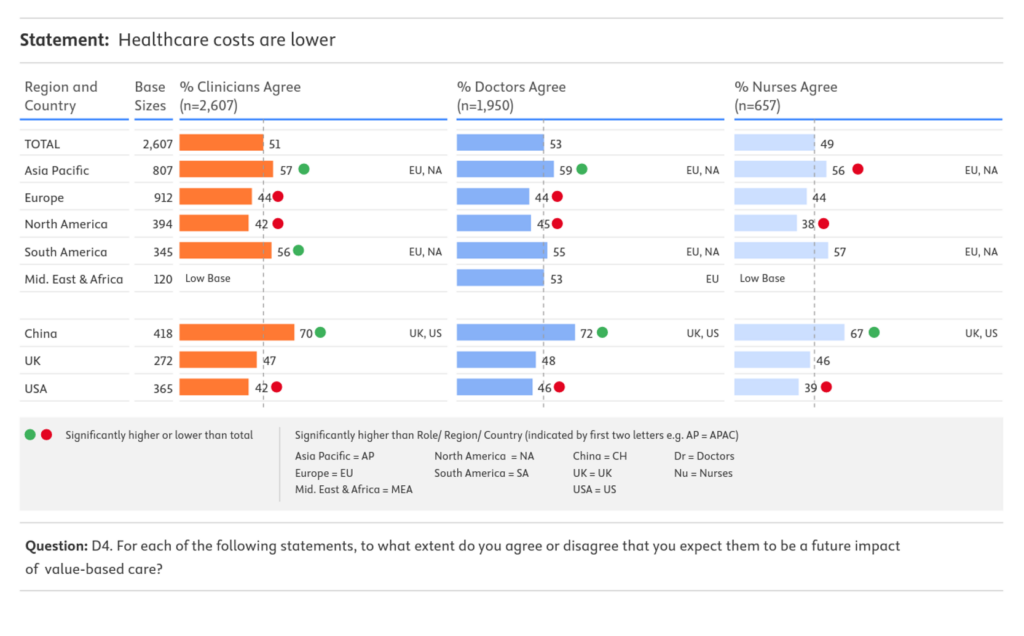
Among the biggest variations in U.S. clinician perspectives versus peers in other countries is the issue of health care costs. By far, the lowest percentage of clinicians, 42% in the U.S., expect that health care costs will be lower as a result of value-based care — with more U.S. doctors being most cost-optimistic than nurses, interestingly enough.
Consider Elsevier’s five Future Clinician personae as you consider how clinicians in your sphere of work, influence, and community are faring in the “present:” these are, The Future Clinician….
- as a Partner for Health, working collaboratively with patients who are empowered members of their own care team
- as a Total Health Clinician, focusing on preventive care
- as a Tech-Savvy Clinician, using data and modern digital health technologies as they emerge
- as a Balanced Clinician, with a better work-life balance to prevent burnout and bolster well-being, and,
- as an Accessible Clinician, aware of health disparities and working in a system available to all health citizens.
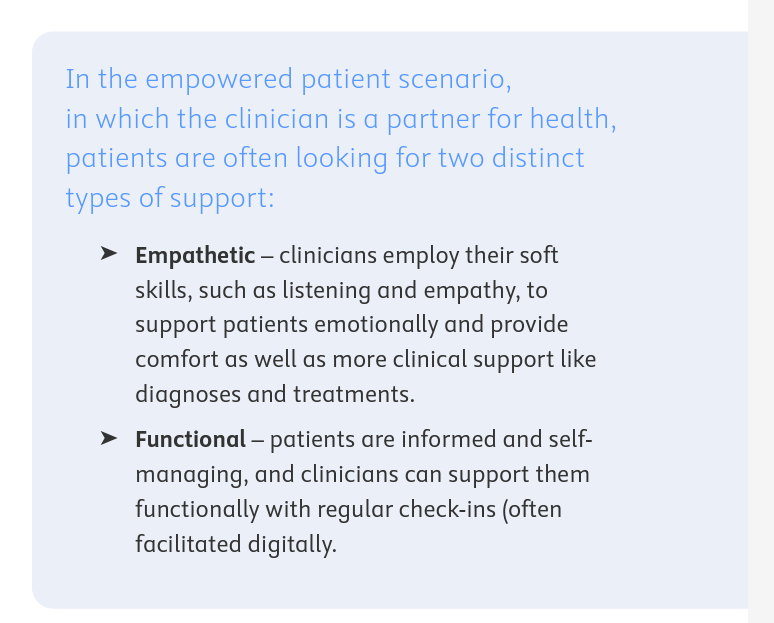
Health Populi’s Hot Points: I’ll be collaborating with innovators in health care this week at the AHIP 2023 Consumer Experience & Digital Health Forum in Nashville. My two sessions, on streamlining patient/consumer experience in health care and the growing role of ChatGPT and AI in patient care mesh well with Elsevier’s conception of the empowered patient scenario, defined here in terms of (1) empathy and (2) functional support of patients for self-care and condition management.
In my recent post noting that personalizing health care means personalizing health plans, I discussed consumer research from HealthEdge whose recommendations can help health care stakeholders support patients, consumers, caregivers and all health citizens in their self-care, empowerment, and ultimately member satisfaction.
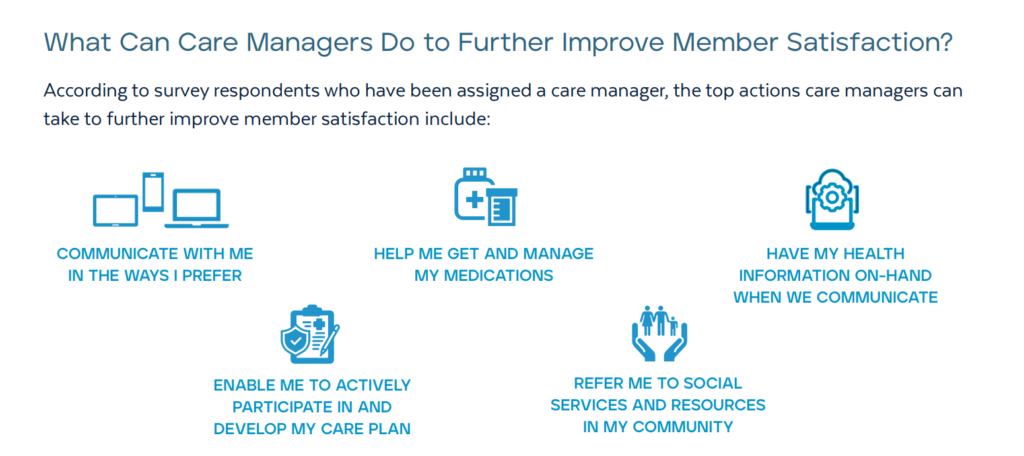
These speak to the demand for omni-channel health care — communicating with “me” in the ways “I prefer,” enabling me to participate in and develop my personal care plan, and to refer me to social services and resources in my community — akin to the Future Clinician as that Accessible Clinician that Elsevier described.
Stay tuned to Health Populi as I curate a summary of my observations at this week’s meeting, all focused on the patient-as-health-consumer demanding personalization, quality, and to be sure, affordable health care.


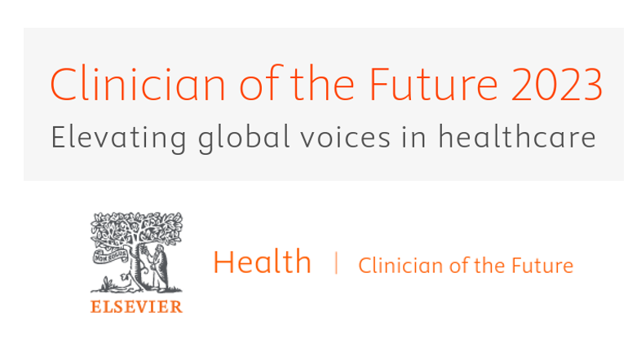


 I'm in amazing company here with other #digitalhealth innovators, thinkers and doers. Thank you to Cristian Cortez Fernandez and Zallud for this recognition; I'm grateful.
I'm in amazing company here with other #digitalhealth innovators, thinkers and doers. Thank you to Cristian Cortez Fernandez and Zallud for this recognition; I'm grateful. Jane was named as a member of the AHIP 2024 Advisory Board, joining some valued colleagues to prepare for the challenges and opportunities facing health plans, systems, and other industry stakeholders.
Jane was named as a member of the AHIP 2024 Advisory Board, joining some valued colleagues to prepare for the challenges and opportunities facing health plans, systems, and other industry stakeholders.  Join Jane at AHIP's annual meeting in Las Vegas: I'll be speaking, moderating a panel, and providing thought leadership on health consumers and bolstering equity, empowerment, and self-care.
Join Jane at AHIP's annual meeting in Las Vegas: I'll be speaking, moderating a panel, and providing thought leadership on health consumers and bolstering equity, empowerment, and self-care.